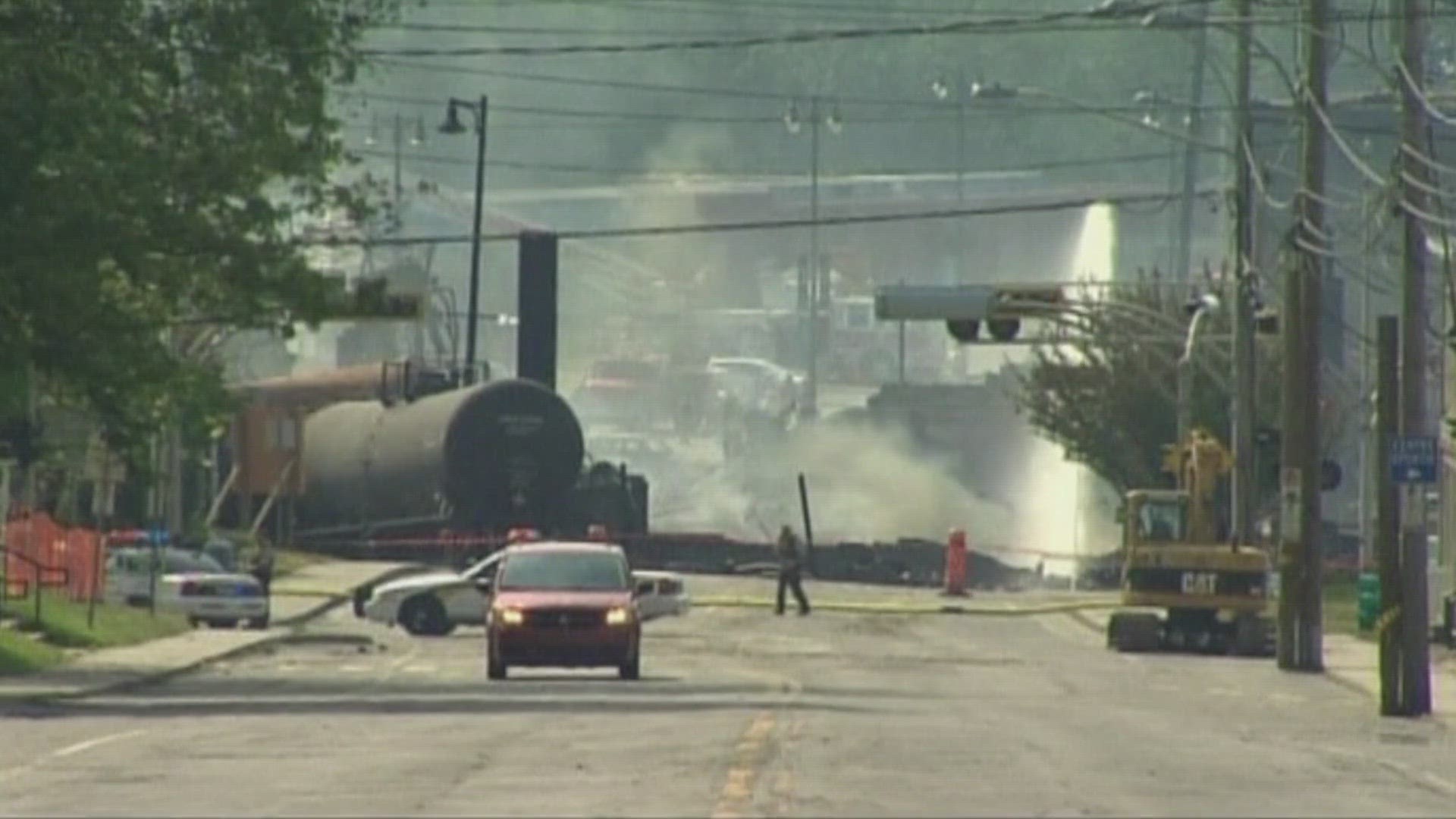LAC-MÉGANTIC, QC — July 6, 2023, marks a somber 10-year anniversary for the Quebec city of Lac Megantic. In 2013, a runaway train carrying 2 million gallons of crude oil derailed and crashed at the top of a hill above downtown.
Explosions, fire, and rivers of oil that seeped into sewer systems underground not only destroyed infrastructure but killed 47 people either sleeping or wrapping up their night at a bar called the Musi-Cafe.
Just 30 minutes over the Maine border and sitting on Lake Megantic, the city had long been a destination spot for visitors from Maine.
We spoke with firefighters who crossed the border to assist Canadian crews as oil and fire destroyed more than 30 homes and businesses and shut down Megantic's downtown for 2 1/2 years. You can read that story here.
NEWS CENTER Maine has visited the city a few times since the disaster and returned two weeks ago to see the progress made in the past 10 years.
As the sun broke along the lake, a welcome sight: crystal clear water and freshly mowed grass growing in the park. Look a little closer at some of the memorials scattered throughout the city, and you'll see why this view is so incredible.
Just nine years ago, cleanup and demolition efforts were well underway in what had been blocked off and deemed the red zone. Some 50 buildings were either leveled by fire or ultimately torn down, and all of the soil was removed. Everything fresh, nearly everything rebuilt.
When we came back for the 10-year mark, we met with Stéphane Vachon, the director of economic development for Lac Megantic.
"Businesses had to relocate ASAP after the tragedy," Vachon said. "So since the decontamination took a little over two years, they had to relocate sooner than that. Construction was done within eight to nine months [on a new downtown]."
Most were rebuilt on Papineau Street which runs parallel to the old downtown. Among the businesses relocated there: the Musi Café, which was one of the first places hit by the train derailment and explosion in 2013. It's where most people were killed in the early morning hours of July 6, while having a drink and enjoying live music.
"I think we're at least back to where we were but in a different way, because you don't go through something like that without any impact or changes," Vachon said.
However, the old, rebuilt downtown isn't exactly bustling. It's separated from Papineau Street by railroad tracks, and trains continue to roll through.
Ten years later, a memorial now sits where that Musi café once was, right next to the railroad tracks. To the city's relief, there is hope that the tracks will move away from downtown. That's a conversation that began shortly after the rail disaster. Multiple studies later, the Government of Canada said the Lac Megantic bypass is close to happening, as landowner holdouts are served eviction notices and payments.
"The train has been a part of the development of North America, Canada was built on railroads," Vachon said. "In the future if you talk about sustainable development, trains are the least GMS -- less polluting way of transportation for every 100,000 pounds you carry. So it's going to be there forever, so we have to work with it."
However, Vachon admitted that getting the trains out of downtown would be a relief. It will also allow them to bridge the separated downtowns.
While the city rose from the ashes, so did opportunity.
Vachon said the people of Megantic weighed in on what they wanted during the rebuild, which included more solar power projects, more green space, less light pollution, and a new boat launch that requires each boat to be cleaned off before entering, keeping the lake healthy. Not just rebuilding Megantic but ensuring its future in a changing climate.
"Are there businesses and people who left and will never come back?" I asked.
"Probably, yes. I can think of a few people who couldn't take it, and they left," Vachon replied. "But we had many, many more coming in, a lot of young families and young people who were inspired by the story."

